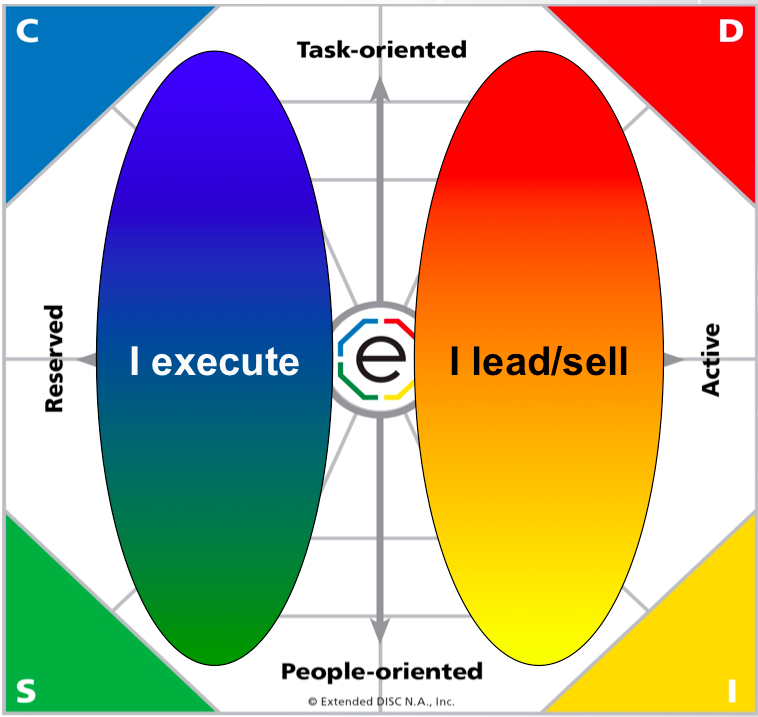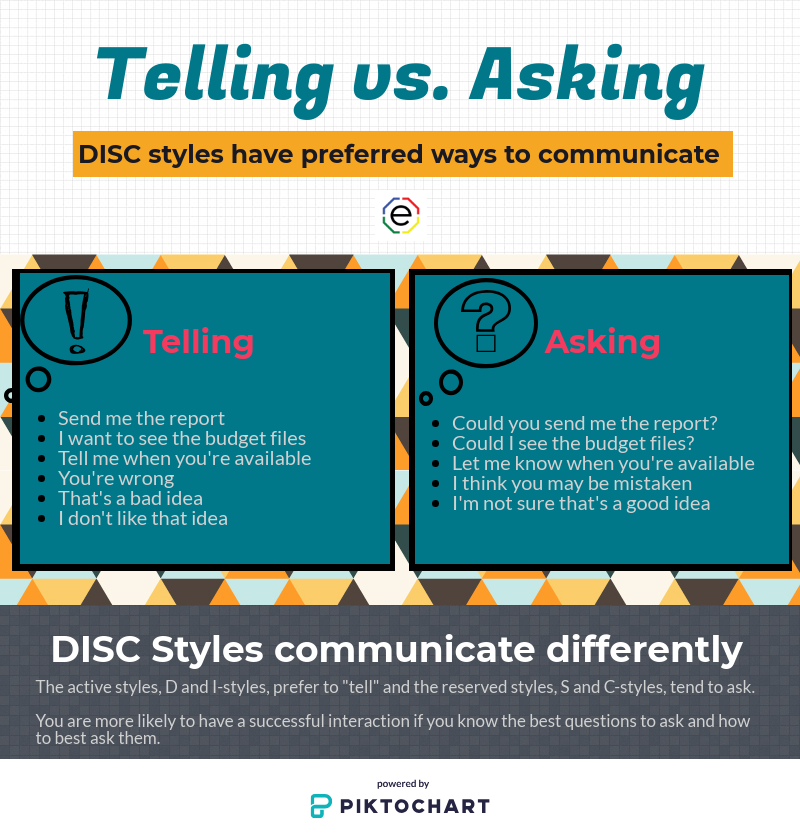
Christina Bowser
Recent Posts

What are the 6 Basic Profile Types?
Ninety nine percent of all individuals who take the Extended DISC Assessment are a combination of DISC styles. The Basic Profile Types describe the 6 DISC profiles that are a combination of two DISC styles. They are the second most common profile type, following profiles with three DISC styles. They are DI/ID, SC/CS, IS/SI, DC/CD, DS/SD and IC/CS. The

I recently noticed an Instagram post on how to be more polite; in other words, stop "telling" and start "asking."







